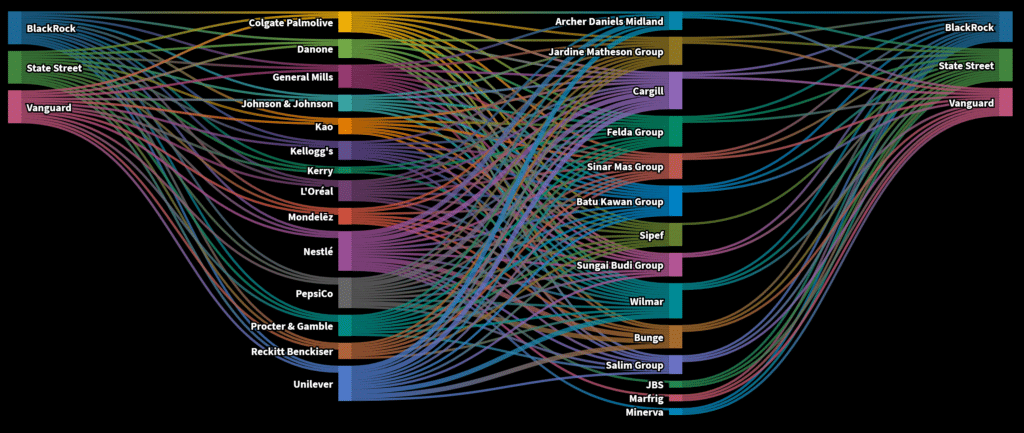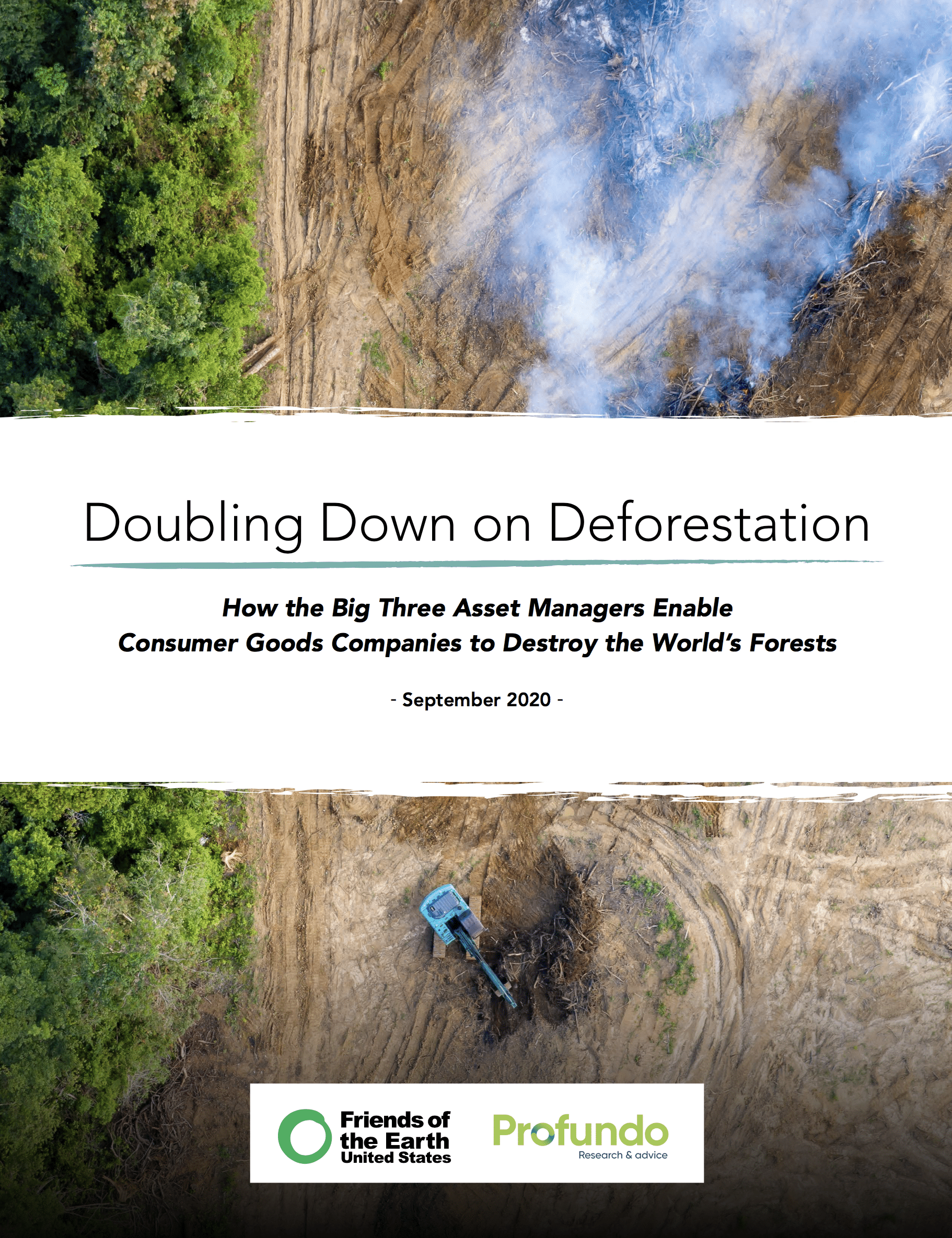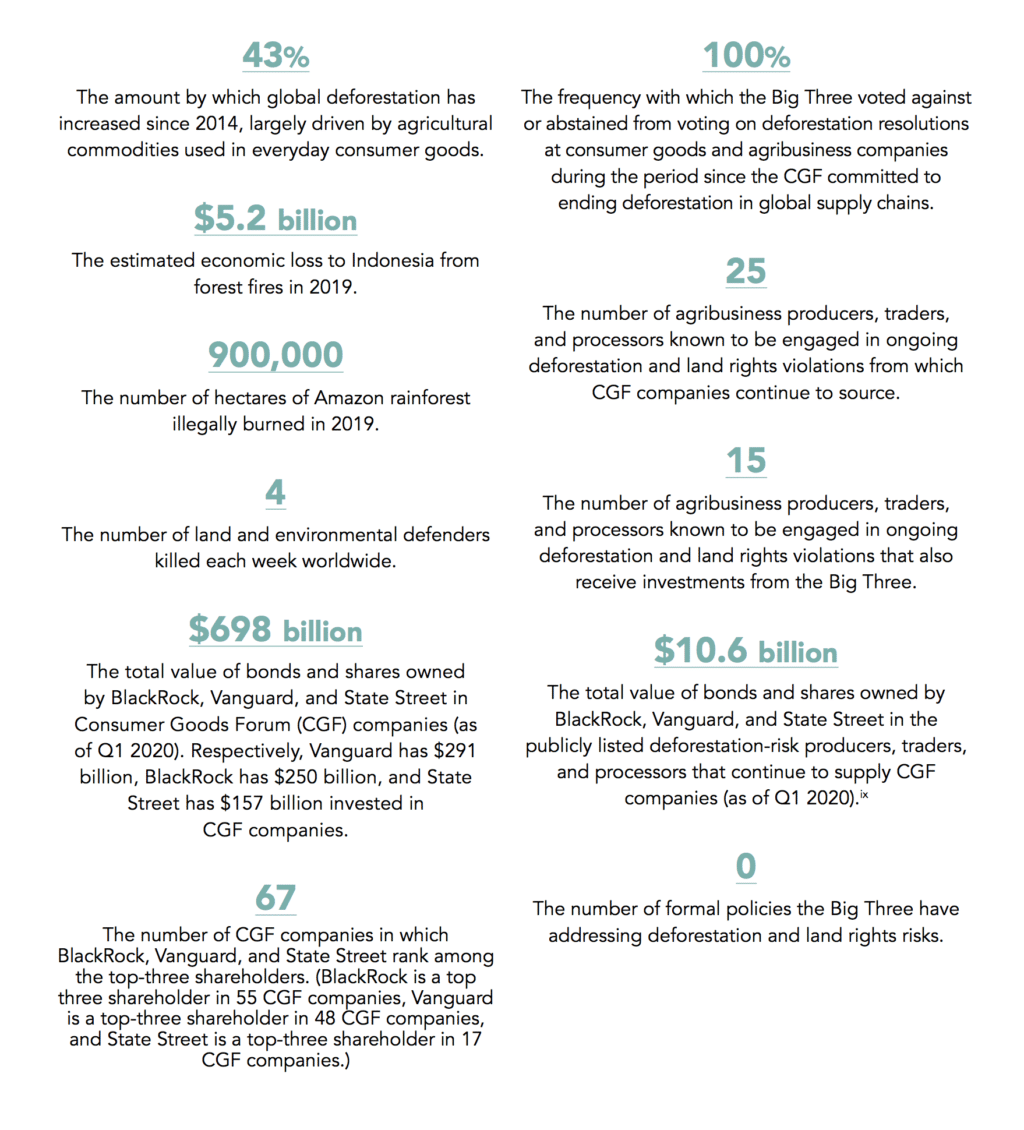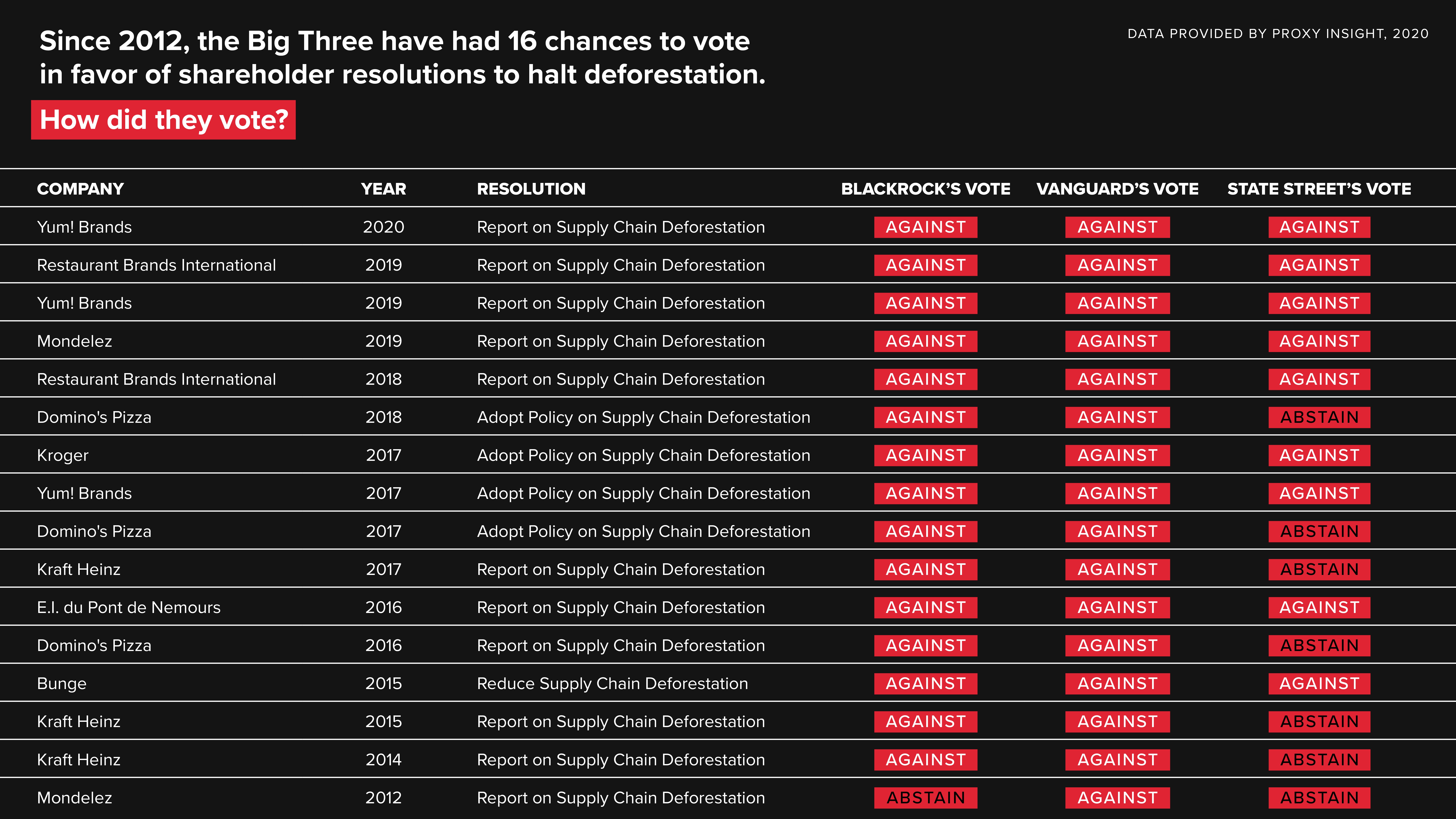- Home
- Forests
- Land Grabbing, Forests & Finance
- Doubling Down on Deforestation
Doubling Down on Deforestation
Doubling Down on Deforestation: How the Big Three asset managers enable consumer goods companies to destroy the world’s forests
In 2010, the Consumer Goods Forum (CGF), a consortium of the world’s largest retail companies, made a big promise. The CGF, which includes globally recognized brands like Procter & Gamble, Mondelez, Nestlé and Unilever, committed to achieving zero-net deforestation in its members’ supply chains by 2020. Unfortunately, CGF companies failed to meet the 2020 deadline. Deforestation driven by industrial agriculture has continued at an alarming pace. Today, the world’s forests are literally on fire.
CGF member companies bear a sizable share of the responsibility for this crisis – but the responsibility is shared with governments that fail to regulate and enforce laws, and with the financiers and shareholders that enable industry to continue its destructive course.
The largest money managers in the world, BlackRock, Vanguard and State Street – collectively known as “the Big Three” — have a total of $698 billion invested in CGF member companies, and $12.1 billion more invested in agribusiness producers and traders directly driving deforestation – yet they have no formal policies to address the deforestation crisis.
Worse yet, since 2012, the Big Three have voted against or abstained from every single shareholder resolution that called for action on deforestation. This is not just inaction – it is willful neglect.
Read the report
Read the executive summary
READ THE PRESS RELEASE
“If we don’t act now to preserve and protect our world’s forest, we will exacerbate an ongoing environmental and human rights crisis. Global deforestation rates have accelerated by 43 percent since 2014 and we need every company, from consumer retailers to financial firms, to realize we can’t stand by as forests are razed and burned. Friends of the Earth’s new report demonstrates the pressing need for the financial sector to confront its role in deforestation and to act with urgency to protect forests and our climate.” — Scott M. Stringer, Comptroller of the City of New York
See if your own funds may be linked to rainforest destruction at Deforestation Free Funds.
Key findings by the numbers
Deforestation and degradation of large swaths of land – largely driven by the industrial production of soft commodities such as palm oil, soy, cattle, and pulp and paper – is the second largest contributor to the climate crisis. These industries are also routinely involved in gross human rights abuses, land grabbing, and the destruction of critical wildlife habitat. In 2019, an average of four environmental human rights defenders — many of them Indigenous — were murdered every week.
The Consumer Goods Forum commitment failed not only because consumer goods companies were not ambitious enough or because governments have failed to enforce adequate regulatory frameworks, but also because powerful investors have consistently undermined meaningful action.
How the Big Three double down on financing deforestation supply chains

The Big Three have consistently voted against or abstained from shareholder votes to halt deforestation.



